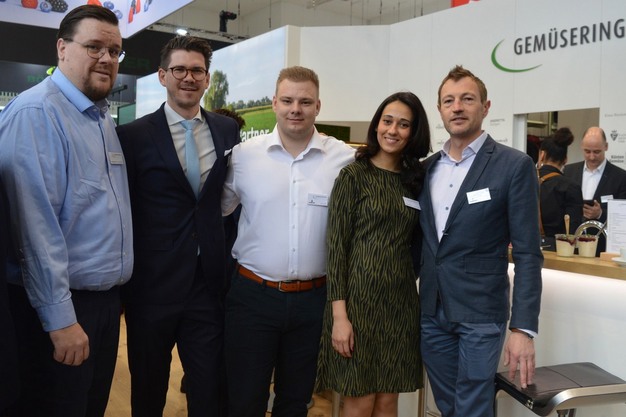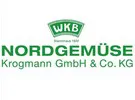The blueberry market is currently undergoing its annual seasonal transition. "The season is drawing to a close in Morocco and Spain, while the harvest in Serbia and Romania is gradually picking up pace. Thus, this year we are witnessing a rather seamless seasonal transition," reports Christiaan Koellreuter from Nordgemüse Krogmann GmbH & Co KG, the largest blueberry sorting and packaging operation in Northern Germany. Small formats up to 300 grams are currently dominating the scene, with 500-gram units being less available according to supply. According to Koellreuter, widespread availability of large quantities from Eastern Europe as well as German open field cultivation is expected to start from the beginning of July.
The demand for blueberries has been unbrokenly high in the past months. Koellreuter: "There were phases of undersupply in Spain and Morocco, though to a much lesser extent than in 2023, so that promotions with 500-gram containers were partly possible. Therefore, the market situation was balanced lately. Now, just before the end of the season, the supply quantities are slightly decreasing, which is reflected in correspondingly higher prices. Otherwise, the price level for Moroccan and Spanish blueberries was approximately at the level of the previous year." Also, the first small quantities from German tunnel cultivation are now entering the market. From August, German produce will increasingly be replaced by imports from Ukraine and Poland.
 Christiaan Koellreuter (l) with some colleagues from the cooperation partner Widmann at this year's Fruit Logistica.
Christiaan Koellreuter (l) with some colleagues from the cooperation partner Widmann at this year's Fruit Logistica.
Cherry vinegar fly endangers blueberry cultivation
In Serbia and Romania, the season is starting with excellent qualities. "The calibration, Brix values, and shelf life of the early produce are outstanding. Unlike last year, which saw a lot of rainfall at the start of the season, this year both countries have been spared significant weather caprices, be it frost, hail, or heavy rain," explains Koellreuter and warns: "Due to the wet winter in Europe, there could be increased problems with cherry vinegar flies this year. Although this phenomenon cannot be completely prevented, cultural care plays a very important role here."
In German blueberry cultivation, the signs have been very promising so far. "There have been predominantly warm days and cool nights. Warm nights are generally better for growth, but then the growth can sometimes be almost too rapid. Therefore, slightly cool nights have been advantageous so far – preventing too rapid ripening. Thus, especially in Northern Germany, a slightly above-average blueberry year is emerging." In the first half of July, the mid-early variety Duke will mainly hit the market. Draper has now become the most important variety in the later segment, with Valor and Cargo complementing the offering. "In the last week of July, there is the week of the German blueberry, which will probably be the last peak week in marketing. However, smaller quantities of late blueberries, such as the Aurora variety, will still be harvested well into September. These are particularly suitable for direct marketing, due to the high production costs and the overlap with Ukraine and Poland."
Expansion of procurement and marketing
To meet the rising demand for blueberries in European markets, the cooperation partners Nordgemüse and Widmann have gradually expanded their procurement and production network in recent years. "We are strengthening our position by expanding our own plantations in Romania and Namibia and have also strong partners in Poland and Ukraine with whom we are working. There are also new sourcing countries like Georgia: Until now, we have only sourced small quantities from this country, but I see it as a prospective player on the European market in the future."
The focus in marketing continues to be on supplying the German food retail industry. In addition, Nordgemüse is also dedicated to exporting to other European countries. The export markets include, among others, Eastern Europe, Switzerland, Austria, and Scandinavia. Production and marketing go largely hand in hand, confirms Koellreuter. "In Romania, for example, we supply the food retail industry seasonally with blueberries from our local cultivation and the rest of the year with imports."
For more information:
Christiaan Koellreuter
Nordgemüse Krogmann GmbH & Co KG.
An der Autobahn 50
29690 Buchholz/ Aller
Tel.: +49 (0) 5071 / 96 80 00
E-Mail: Info@nordgemuese.de
www.nordgemuese.de
